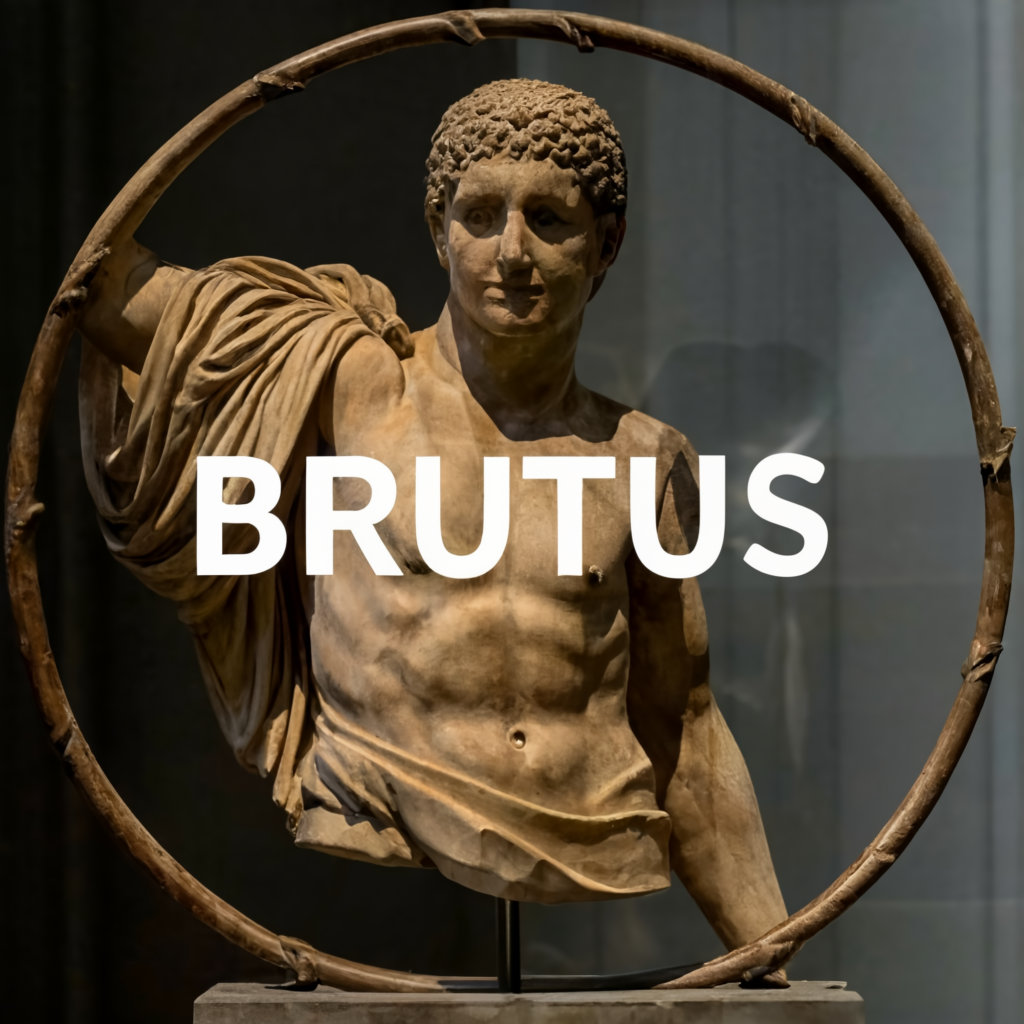Brútus, regularly referred to as Marcus Junius Brutus, is a call that resonates through records, often due to his pivotal position in the assassination of Julius Caesar. Known for his political integrity, philosophical ideals, and tragic fate, Brútus has grow to be a symbol of betrayal and the complexities of loyalty and honor. This article explores the life, movements, and enduring legacy of Brútus, offering insights into his have an effect on on Roman records and tradition.
Early Life and Background of Brútus
Marcus Junius Brutus turned into born in eighty five BCE into a prominent Roman family. His mom, Servilia, turned into a noblewoman, and his father, Marcus Junius Brutus the Elder, turned into a senator. Brútus was well-educated, exposing him to the philosophical teachings of the Stoics, which might form his ethical compass and political views. His upbringing in a politically active own family supplied him with a strong basis within the political intricacies of Rome, which might later play a vital position in his existence.
Brútus changed into additionally connected to Julius Caesar through a complicated familial relationship. Servilia, his mother, had an affair with Caesar, which complicated the dynamics of loyalty and kinship that would later spread of their political entanglements.
Political Ascent and Philosophical Ideals
Brútus’s early career turned into marked with the aid of his alignment with the Optimates, the conservative faction of the Roman Senate. His dedication to the Republic’s traditional values often put him at odds with populist leaders like Caesar. Brútus’s philosophical tendencies in the direction of Stoicism emphasised rationality, distinctive feature, and the significance of moral integrity, which deeply inspired his political choices.
As he gained prominence in the Senate, Brútus was seen as a person of principle, which earned him each admiration and enmity. His popularity as an honorable politician made him a key player inside the tumultuous political panorama of Rome at some point of the overdue Republic.
The Assassination of Julius Caesar
The maximum notorious moment in Brútus’s life got here at the Ides of March in 44 BCE, when he, along with a group of conspirators, assassinated Julius Caesar. The motivations behind this drastic act have been rooted in a worry of tyranny and a desire to keep the Roman Republic. Many conspirators believed that Caesar’s developing strength threatened the democratic standards that had been foundational to Rome.
Brútus’s choice to sign up for the conspiracy changed into in particular shocking due to his near dating with Caesar. He had formerly obtained Caesar’s believe and desire, making his betrayal appear even more poignant. This act of assassination, which Brútus believed to be for the greater suitable of Rome, caused devastating outcomes, which include civil warfare and the eventual upward push of the Empire.
The Aftermath and Civil War
Following Caesar’s assassination, the political panorama of Rome became thrown into chaos. Brútus and the opposite conspirators first of all was hoping to restore the Republic and rid Rome of what they perceived as a tyrant. However, the electricity vacuum left by means of Caesar’s dying brought about a warfare for manage among his supporters and people who antagonistic him.
Brútus, alongside Cassius, faced off in opposition to Mark Antony and Octavian (later called Augustus) on the Battle of Philippi in forty two BCE. Despite their initial successes, Brútus and Cassius suffered defeat. Brútus’s commitment to his beliefs and his notion that he may want to turn the tide proved fatal, as he in the end chose to take his very own lifestyles in place of be captured.
Legacy of Brútus
Brútus’s legacy is multifaceted. He is often portraye as the tragic hero, a person torn. Between loyalty to his pal and his commitment to the Roman Republic. His actions were interpreted in various ways during history, serving as a topic. Of study in political philosophy, ethics, and literature.
In Shakespeare’s play “Julius Caesar,” Brútus is depicte as a noble figure. Whose inner struggle and ethical dilemmas upload depth to the narrative. His famous line, “Et tu, Brute?” has turn out to be synonymous with betrayal, reflecting the profound. Effect of his actions on literature and famous lifestyle.
Moreover, Brútus’s lifestyles raises important questions about the nature of loyalty, justice, and the moral complexities of political power. His legacy serves as a reminder of the sensitive balance among non-public relationships and political responsibilities. A subject matter that stays applicable in cutting-edge political discourse.
The Historical Impact of Brútus
Brútus’s existence and movements have stimulated infinite generations of political leaders and thinkers. His tale is often note in discussions about the ethics of political. Assassination and the justification of rise up in opposition to tyranny. The philosophical implications of his decisions retain to resonate, prompting debates approximately. The morality of such actions within the pursuit of political ideals.
In modern-day discussions, Brútus is frequently reference in analyses of political betrayal and the difficult dynamics of electricity. His legacy serves as a cautionary story about the consequences of political choices and the capability for accidental outcomes.
Conclusion
Brútus stays one of history’s maximum enigmatic figures, embodying the complexities of loyalty, honor, and political obligation. His movements at the Ides of March, driven by means of a proper desire to defend the Roman Republic. Ultimately led to his downfall and a shift in the path of records. As we replicate on his life, we apprehend the iconic classes his story imparts. About the nature of energy, ethics, and the demanding situations of governance.
In analyzing Brútus’s legacy, we gain insight into the moral dilemmas that maintain to undertaking political leaders today. His existence serves as a reminder that the pursuit of noble ideals can result in tragic results. And the balance between private loyalties and political duties is a delicate one that requires cautious consideration.
